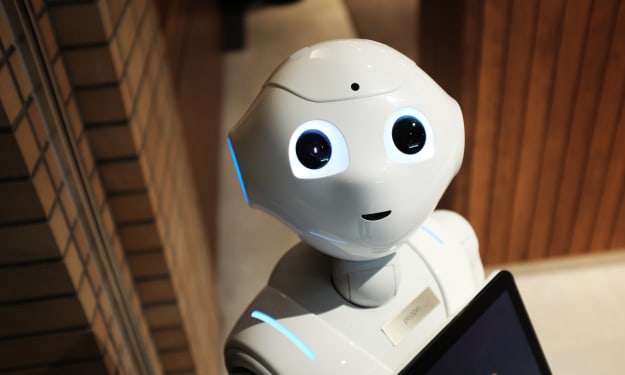The Rise of Artificial Intelligence: Transforming Industries and Shaping the Future
The rise of artificial intelligence

Artificial Intelligence (AI) has emerged as a transformative technology that is reshaping industries, revolutionizing processes, and redefining the way we live and work. With its ability to analyze vast amounts of data, learn from patterns, and make intelligent decisions, AI is driving innovation across various sectors. In this article, we will explore the rise of artificial intelligence, its impact on industries, and its implications for the future.
What is Artificial Intelligence?
Artificial Intelligence refers to the development of intelligent machines that can perform tasks that typically require human intelligence. AI systems leverage algorithms, data, and computational power to mimic cognitive functions such as problem-solving, decision-making, speech recognition, and visual perception. Machine Learning and Deep Learning are key subsets of AI that enable systems to learn and improve from experience.
AI's Impact on Industries:
a. Healthcare: AI is revolutionizing healthcare by enabling faster and more accurate diagnostics, personalized treatment plans, and drug discovery. AI-powered systems analyze medical records, images, and genetic data to identify patterns and make precise diagnoses. It also helps in monitoring patients, managing healthcare logistics, and improving patient outcomes.
b. Finance: The finance industry is leveraging AI for tasks such as fraud detection, risk assessment, algorithmic trading, and customer service. AI-powered chatbots and virtual assistants enhance customer experience and provide personalized financial advice. Predictive analytics and machine learning algorithms enable better investment strategies and portfolio management.
c. Manufacturing: AI is transforming manufacturing through automation, predictive maintenance, and quality control. AI-powered robots and smart machines streamline production processes, reducing costs and improving efficiency. Machine vision systems identify defects in real time, optimizing product quality. AI also enhances supply chain management by forecasting demand, optimizing inventory, and enabling predictive maintenance.
d. Retail: AI is revolutionizing the retail industry by enabling personalized shopping experiences, demand forecasting, and inventory management. Recommendation systems powered by AI algorithms provide customers with tailored product suggestions. AI-driven chatbots and virtual assistants enhance customer support and engagement. AI-powered analytics enable retailers to optimize pricing, promotions, and inventory levels.
e. Transportation: AI is driving innovations in the transportation sector, including autonomous vehicles, traffic management systems, and logistics optimization. Self-driving cars leverage AI algorithms for navigation, object detection, and decision-making. AI-based traffic management systems optimize traffic flow, reduce congestion, and enhance safety. Predictive analytics and AI-driven route optimization improve logistics efficiency.
Ethical Considerations:
As AI becomes more pervasive, ethical considerations become increasingly important. Issues such as bias in algorithms, data privacy, job displacement, and accountability need to be addressed. Ensuring transparency, fairness, and unbiased decision-making in AI systems is crucial. Collaborative efforts between industry, policymakers, and researchers are essential to establish ethical guidelines and frameworks.
Future Implications:
The rise of AI holds significant implications for the future. While concerns about job displacement exist, AI also creates new job opportunities in AI development, data science, and AI ethics. The human workforce can focus on higher-value tasks that require creativity, critical thinking, and emotional intelligence. The collaboration between humans and machines can lead to unprecedented innovations and advancements.
Collaboration and Regulation:
To fully harness the potential of AI while mitigating risks, collaboration and regulation are essential. Collaboration between academia, industry, and governments can drive research, development, and knowledge sharing. Regulations can ensure responsible AI development, data privacy, and the protection of human rights. Ethical frameworks and guidelines can guide the design and implementation of AI systems.
Conclusion:
The rise of artificial intelligence is transforming industries and shaping the future in profound ways. From healthcare to finance, manufacturing to retail, AI is driving innovation, efficiency, and personalization. While ethical considerations and regulation are vital, the potential of AI to enhance human capabilities and drive societal progress is immense. Embracing AI responsibly, fostering collaboration, and addressing ethical challenges will enable us to harness the full potential of this transformative technology and create a future where AI empowers us to tackle complex problems and improve lives.
About the Creator
Milton Artis
Milton Artis: Customer Service Guru and Business Whiz with a decade of experience. Master of problem-solving, sarcasm, and making customers smile!






Comments
There are no comments for this story
Be the first to respond and start the conversation.